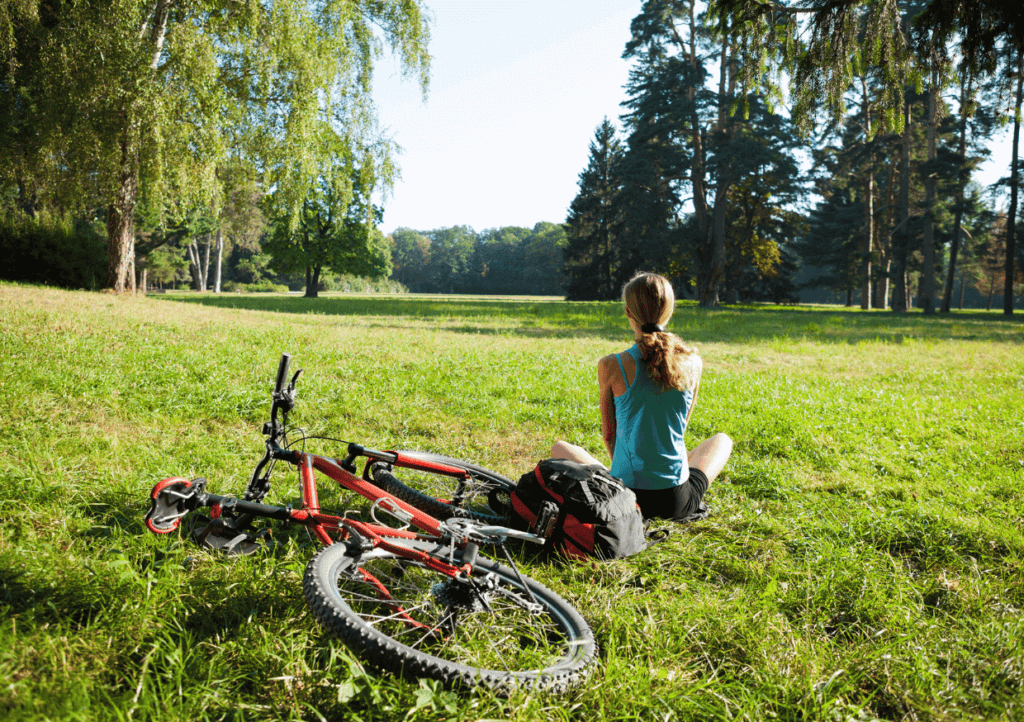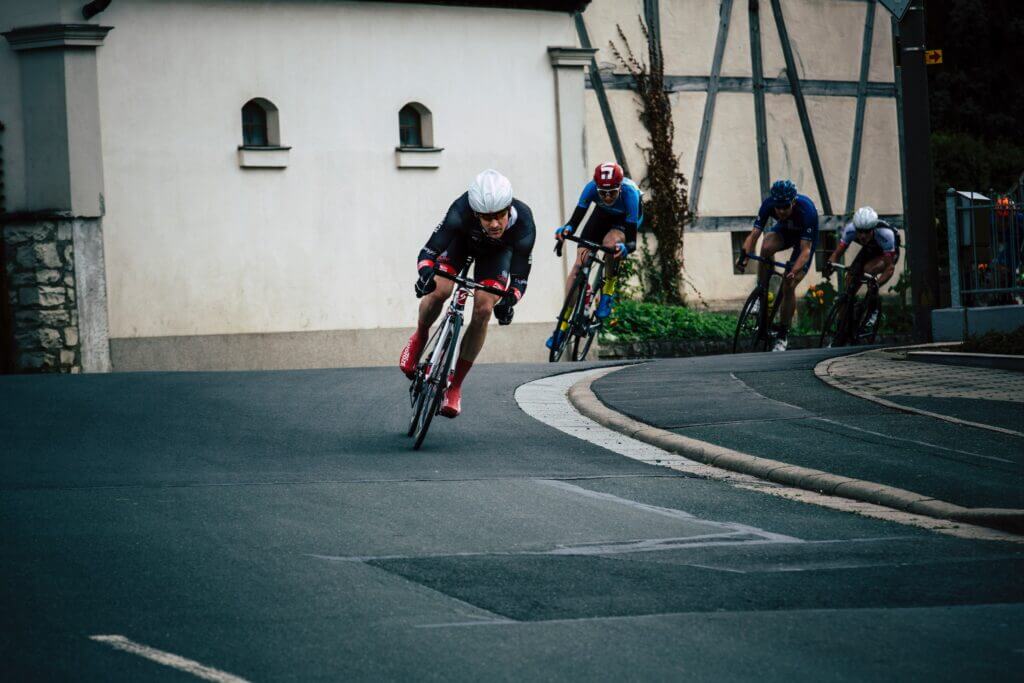As the days get shorter and the weather gets colder, road cyclists enter what’s known as the “off-season.” It’s a period when cycling takes a back seat, giving you a chance to recover both physically and mentally.
The off-season is like a pit stop for cyclists. It’s a time to rest and recharge before serious winter training kicks in. While it might feel strange to put your bike away for a while, this break is essential.
In this article, we’ll explore the benefits of the off-season. It’s not just a pause in your cycling journey; it’s an opportunity to grow, improve, and ensure you’re in the best shape for the next season’s challenges.
1. Physical Recovery

The off-season is a golden opportunity for cyclists to prioritize their physical recovery, a phase often underestimated but crucial for long-term performance and well-being. Cycling, while undoubtedly exhilarating, can exact a toll on your body. The constant exertion, high-impact forces, and repetitive movements can lead to overuse injuries, muscle fatigue, and joint stress.
During this much-needed respite from intense training, it’s paramount to dial down the intensity of your workouts significantly. This deliberate step backward might feel counterintuitive, especially for those used to pushing their limits on the saddle. However, it’s precisely this period of rest that serves as the foundation for a healthier, more resilient body.
As you ease off the pedal, your muscles get the chance to heal and rebuild. Microscopic muscle tears that occur during intense training sessions are repaired, leading to increased muscle strength and endurance. Joint tissues, which often bear the brunt of high-impact cycling, can recover from inflammation and stress, reducing the risk of chronic overuse injuries.
Moreover, the off-season provides your energy levels with a chance to fully recharge. Constant training and competition can leave you feeling mentally and physically drained. By taking a break, you allow your body’s energy systems to regenerate, leaving you more invigorated and ready for the upcoming season.
In essence, the physical recovery aspect of the off-season acts as a reset button for your body. It’s a period of rejuvenation where your muscles, joints, and overall physiology are given the time and space they need to bounce back stronger and more resilient than ever before.
So, embrace this downtime, and trust that your body will thank you with enhanced performance and injury resistance when the next cycling season rolls around.
2. Mental Refreshment

Cycling is not just a physically demanding sport; it can also take a toll on your mental well-being. The relentless pursuit of faster times, longer distances, and tougher challenges can lead to mental fatigue, burnout, and decreased motivation. That’s where the off-season comes to the rescue as a period of much-needed mental refreshment.
During the competitive season, your mind is constantly focused on training routines, race strategies, and performance goals. This unrelenting mental pressure can drain your enthusiasm and creativity, making it essential to step back and recalibrate during the off-season.
The beauty of the off-season lies in its freedom. It’s a time when you can explore other activities and interests, whether it’s hiking, reading, spending quality time with loved ones, or pursuing a new hobby. These diversions provide a refreshing change of pace and allow you to rediscover the joy of cycling.
By shifting your focus away from the rigors of training and racing, you give your mind the opportunity to reset. This mental break is invaluable for maintaining your passion for cycling. It rejuvenates your enthusiasm and helps you regain the mental clarity needed to set new goals and tackle fresh challenges in the upcoming season.
Moreover, the off-season fosters a sense of balance in your life. It reminds you that cycling, while a significant part of your identity, is just one facet of who you are. This realization contributes to a healthier mindset, ensuring that you return to the saddle mentally prepared to face the challenges and triumphs that lie ahead in the next cycling season.
In essence, the mental refreshment offered by the off-season is a cornerstone of long-term cycling success, allowing you to sustain your love for the sport and nurture the mental resilience required for enduring excellence.
3. Setting New Goals

The off-season presents a unique opportunity for cyclists to engage in introspection, assess their past performances, and chart a course for future achievements. It’s a time to recalibrate, to dream big, and to set new goals that inspire you to push the boundaries of your cycling abilities.
Reflection and Assessment: Begin by taking a closer look at your cycling journey over the past season. What were your achievements and disappointments? Did you meet your previous goals, and if not, what held you back? Reflecting on these questions can provide valuable insights into your strengths and weaknesses as a cyclist.
Defining New Objectives: Once you’ve reflected on your past experiences, it’s time to define your new cycling objectives. These goals can be multifaceted, ranging from improving your overall fitness to targeting specific races or conquering challenging routes you’ve never attempted before. The key is to make your goals both challenging and attainable, creating a sense of purpose that fuels your motivation.
Direction and Motivation: Setting clear goals provides a roadmap for your cycling journey. It offers a sense of direction, allowing you to structure your training and rides with a specific purpose in mind. Having these objectives firmly in place will keep you motivated, even when the weather is less than favorable or your energy levels are low.
4. Cross-Training Opportunities

The off-season presents a golden opportunity for cyclists to diversify their fitness routine through cross-training activities. While cycling remains a passionate pursuit, engaging in activities such as hiking, yoga, golf, swimming, or strength training can offer a range of benefits that complement your cycling prowess.
Yoga is a fantastic choice for cyclists seeking to improve their flexibility and mental focus. The deliberate poses and controlled breathing techniques in yoga help elongate tight muscles and release tension. This newfound flexibility can enhance your posture on the bike and reduce the risk of injuries caused by muscle imbalances.
Swimming, with its low-impact nature, provides a refreshing break from the saddle while offering a full-body workout. It builds endurance, strengthens your cardiovascular system, and engages muscle groups that cycling might not target as intensely. Additionally, the rhythmic nature of swimming can have a meditative effect, promoting mental relaxation.
Strength training is another cornerstone of off-season cross-training. Cyclists can benefit significantly from building muscular strength, especially in the core, upper body, and legs. A well-rounded strength training program not only enhances your cycling power but also aids in injury prevention by stabilizing joints and improving overall body balance.
These activities not only provide a break for cycling-specific muscles but also contribute to overall physical fitness and injury prevention. It can also be an excellent way to spend time with family and friends who may not share your cycling enthusiasm.
The improved balance, flexibility, and overall athleticism gained through cross-training will serve you well when you’re back on the road, ensuring that you’re not only a stronger cyclist but also a healthier and more well-rounded athlete.
So, during the off-season, consider exploring these activities to elevate your cycling game to the next level.
5. Bike Maintenance and Upgrades

Neglected bike maintenance can lead to problems during the season, making the off-season the perfect time for maintenance and upgrades. It’s essential to prioritize the care of your cycling equipment during this period, ensuring that your bike is in optimal condition for the challenges that lie ahead.
Start by inspecting your bike thoroughly. Check for any signs of wear and tear, such as frayed cables, worn brake pads, or loose bolts.
Give your bike a good cleaning to remove dirt, grime, and salt residue from previous rides. Cleaning not only improves the aesthetics of your bike but also helps you spot any hidden issues.
Consider taking your bike to a professional bike mechanic for a full service. They have the expertise to identify and address any underlying problems that might not be apparent to the untrained eye.
A professional service can include tasks like truing the wheels, adjusting the drivetrain, and ensuring that your bike is properly lubricated.
If you have a separate bike for winter training, it’s crucial to get it ready for the winter ahead. Winter conditions can be harsh on your bike, so make sure it’s equipped with suitable tires for better traction on slippery roads, and mud guards to prevent dirt and water from splashing onto you and your bike. Additionally, check the condition of your lights for increased visibility during darker winter rides.
Upgrading your bike with the latest technology or more suitable gear can significantly impact your performance and safety on the road. Consider enhancements like more efficient drivetrain components, better braking systems, or improved aerodynamics, depending on your cycling goals and preferences. These upgrades can make your rides more enjoyable and help you achieve better results when the cycling season resumes.
6. Exploring Other Interests

The off-season offers cyclists a unique opportunity to step away from the saddle and explore a world beyond the bike. Diversifying your interests during this time is not only mentally refreshing but also profoundly beneficial for your overall well-being.
Consider trying out different hobbies or activities that you may have neglected during the season. Whether it’s unleashing your creativity with painting, getting your hands dirty with DIY projects, or catching up on some gardening,the off-season provides a canvas for exploration.
The off-season is also the perfect occasion to travel and take vacations. When you’re not tied to a strict training schedule, you have the freedom to explore new destinations, both near and far.
Traveling during the off-season allows you to appreciate the world from a different perspective, and it can serve as a source of inspiration when you return to the saddle.
Moreover, taking a vacation during this time not only rejuvenates your body but also resets your mind. The break from the familiar routine provides a mental escape, helping you return to your cycling pursuits with renewed enthusiasm and a broader perspective.
7. Skill Development

The off-season provides a golden opportunity for cyclists to dedicate time and effort to enhancing their riding skills. While the competitive season often leaves little room for skill improvement, the off-season offers a welcome break from the relentless pursuit of miles and watts.
During the racing season, it’s not uncommon to identify weaknesses or areas that need improvement. These could range from something as seemingly simple as drinking from a bottle while riding to mastering the art of eating on the move without losing speed.
The off-season is the ideal time to address these shortcomings. If you’ve struggled to follow a wheel in races, now is the moment to hone this skill with a friend, simulating race scenarios and perfecting your drafting techniques.
If you’ve found your climbing skills to be a limiting factor, embrace the colder months as an opportunity to conquer the hills. Frequent hill repeats and long, challenging climbs will help build the strength and endurance needed to tackle ascents with confidence.
Similarly, if the thought of riding in a bustling peloton fills you with nerves, consider joining a local cycling club. Riding with others regularly will not only increase your comfort level but also teach you the nuances of riding in close proximity to fellow cyclists.
Remember, the skills you acquire and refine during the off-season will undoubtedly translate into a stronger, more confident cyclist come spring. So, whether it’s fine-tuning your bike handling, conquering descents with grace, or simply perfecting the basics, invest your off-season wisely to reap the rewards when the cycling season returns.

